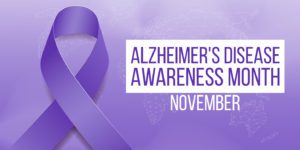Posts Tagged ‘best caregiver companies in Massachusetts’
Alzheimer’s Awareness Month
Nationally, November is known as Alzheimer’s Awareness Month. President Reagan made this designation in 1983 after recognizing the need for heightened disease awareness. While less than two million Americans were living with Alzheimer’s then, the number has since increased to nearly six million. The number of Americans with Alzheimer’s is projected to surpass 13.8 million…
Read MoreHow to Handle Dementia Accusations
The brain of a person struggling with dementia can begin to link facts and details in unusual ways. As the brain starts to change, a false-memory phenomenon can occur. This causes the individual to perceive reality differently than those around him or her and can lead to hurtful behavior toward caregivers. One common scenario experienced…
Read MoreHurtful Words and How Caregivers Can Cope
It’s no easy task to care for an individual suffering from Alzheimer’s or dementia. Still, difficulty can quickly escalate when that person starts using hurtful words to interact with you. It’s human nature to take rude or mean words personally and feel that the individual is consciously attacking you verbally; however, in the case of…
Read More6 Ways to Prevent Heat Stroke in Seniors
Summertime can be a fun and wonderful season to enjoy the outdoors – but it can also present dangers in the form of heat injuries such as heat stroke. Heat stroke is a condition caused by your body overheating, usually due to prolonged exposure to the sun or physical exertion in high temperatures. Because untreated…
Read MoreLiving Will vs. Health Care Proxy
Although most people realize they should have some advanced healthcare directive in place, there is often a lot of confusion about what type they need and why. First, it’s important to understand why advanced healthcare directives emerged. They were created in response to increasingly sophisticated medical technology. A century ago, before recent technological breakthroughs and…
Read MoreHow to Create a Dementia-Friendly Garden
Gardening is an excellent form of exercise and sensory stimulation for the elderly. This is especially true for those who suffer from dementia or Alzheimer’s, since gardening keeps the brain active, helps create a routine, stimulates the mind and senses, and provides a feeling of purpose. Studies have found that gardening can reduce the risk…
Read MoreWays to Create a Dementia-Friendly Environment at Home
Everyday life can be very challenging for someone with Alzheimer’s or dementia. Older adults have even more trouble with mental issues such as remembering, reasoning, thinking, and processing as the disease progresses. While there’s not much caregivers can do to slow the progression of the disease, they can make simple adaptations at home that cause…
Read MoreTherapeutic Fibbing
The brain damage experienced by dementia and Alzheimer’s patients causes a progressive decline in their ability to understand and process information – creating in essence a different version of reality in which they live. Forcing them to abandon their version of reality to join the “real world” can cause them tremendous pain, confusion, fear, anxiety,…
Read MoreHow to Manage Snow Removal for Seniors
This winter we’ve seen more snowfall here in New England than we have over the last few years. For school-age children, skiers, and snow lovers, this is good news – but for the rest of us, snowstorms can tend to produce more hassles than fun. While snow shoveling isn’t enjoyable, it’s often unavoidable – and…
Read MoreHow to Talk to Your Parents about Getting In-Home Care
If you visit your aging parents over the holidays, you may notice a considerable decline in their capabilities and realize it might be time to bring in some at-home care. However, this could be a susceptible topic for them, so it is important to approach the conversation correctly and at the right time. Here are…
Read More









